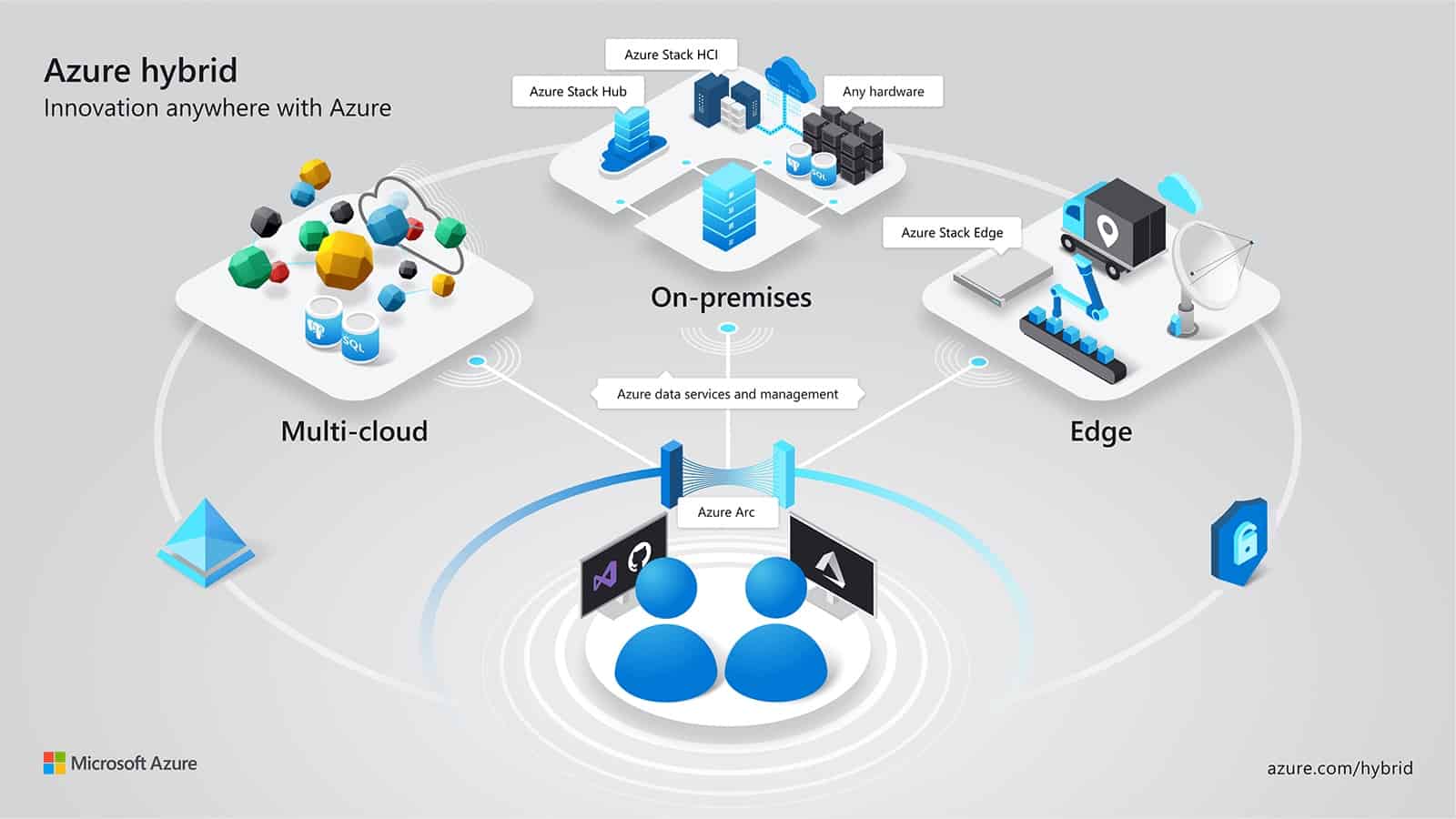Microsoft announced Azure Arc on 4th November 2019 at the Ignite 2019 conference. Azure Arc enables enterprises to deploy Azure cloud services, on any type of on-premises infrastructure as well as in a multi-cloud environment. As hybrid cloud strategies for enterprises gain more popularity, app and cloud management will be a more sought-out service that public Infrastructure as a Service (IaaS) can provide. In this regard, Microsoft’s biggest competitors, AWS and Google Cloud have also recently launched their hybrid cloud management services, AWS Outposts, and Google Anthos, respectively.
A hybrid cloud strategy is an enterprise cloud strategy that involves managing and operating workloads across different infrastructure environments, namely, on-premises, private cloud or public IaaS cloud. Enterprises often need to keep confidential data on-premises or in a private cloud. However, other less sensitive data and applications can be maintained in public cloud environments because it can be more cost-effective and offer additional features. Azure Arc has added a further dimension to this hybrid strategy with managing resources across multiple public cloud platforms.
According to Microsoft, Azure services can be enabled on any computing platform, including Windows and Linux servers, located on-premises, in the cloud or at the edge. Any Windows or Linux server, even those running behind a firewall and proxy, can be registered with Azure Resource Manager. VMs running on top of VMware vSphere, Amazon EC2, and Google Compute Engine can also be registered with the Azure Resource Manager.

In addition to this, Microsoft said that Azure Arc can also register Kubernetes clusters. Once registered, any Kubernetes cluster can be managed like Azure’s Kubernetes Service (AKS). Customers have the flexibility to deploy Azure SQL Database and Azure Database for PostgreSQL Hyperscale, where they need it, on any Kubernetes cluster.
From the Azure portal, customers get a unified and consistent view of all their Azure data services running across on-premises and clouds and can apply consistent policies for security and governance across the different environments. Microsoft has a good hold in the enterprise cloud market; however, it has limited visibility among start-ups due to better offerings from AWS and Google Cloud in terms of pricing and services.
AWS’ hybrid cloud solution, Outposts, combines pre-configured hardware and software to the customers’ on-premise data center or co-location space to run applications in a cloud-native manner, without having to operate from AWS data centers. Currently, users can utilize EC2 instances and EBS volumes for storage. At a later stage, Outposts will locally support Amazon ECS and Amazon EKS clusters for container-based applications, Amazon EMR clusters for data analytics, and Amazon RDS instances for relational database services. However, until now, there has not been a multi-cloud solution being provided by AWS.
Google hybrid cloud solution, Anthos, is a combination of Google’s Kubernetes Engine (GKE), GKE on-premises and the Anthos Config Management console for unified administration and security policies across hybrid Kubernetes deployments. It can be run on customers’ existing servers. Anthos will also let users manage workloads running on third-party clouds like AWS and Azure, giving freedom to deploy, run and manage applications on any cloud. However, Google is yet to bring managed database services such as Cloud SQL and Bigtable to Anthos.
Azure Arc has shifted the paradigm of hybrid cloud management, by providing resource management on different types of servers as well as different cloud platforms. This feature will help its customers undertake cloud migration. This will also increase the cloud adoption for enterprises that are yet to migrate. Until now, Google Anthos is the closest competitor to Azure Arc, for example in the way it provides Kubernetes clusters across multiple cloud platforms. However, the absence of managed databases in Anthos gives Azure Arc an edge. AWS must boost its hybrid cloud management services to compete with Microsoft and Google. However, Microsoft will need to capitalize on this opportunity by targeting small and medium businesses as well as start-ups, as its competitors are chasing hard with their own multi-cloud management solutions.

